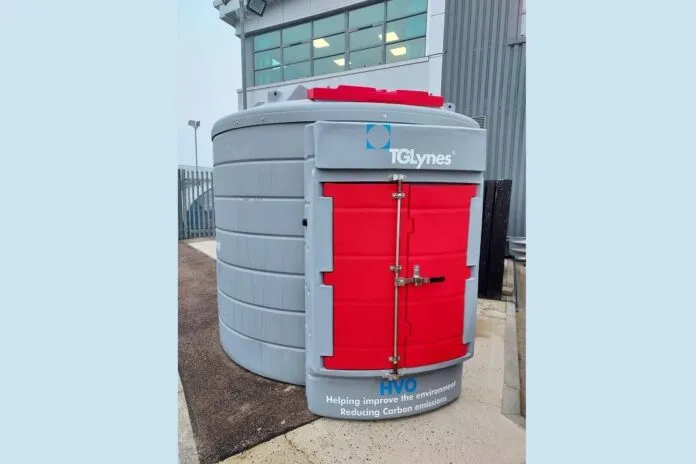
TG Lynes has taken the next step on its road to net zero by introducing low carbon Hydrotreated Vegetable Oil (HVO) vehicles to its fleet.
The company has started using HVO in two of its 18 tonne lorries which were running on diesel, making them 90% more carbon efficient. It has also installed a 10,000 litre HVO tank at its Enfield base for easy on-site refuelling. According to TG Lynes’ representatives, HVO is a cleaner alternative to diesel and is manufactured from 100% renewable and sustainable waste, including vegetable oil, tallow and used cooking oil.
Andrew Ingram, general manager at TG Lynes, said: “We’re delighted to have introduced HVO to these two Euro 6 vehicles in our fleet. HVO is much better for the environment than diesel and the projected carbon saving through the course of 2023 is more than 12.5 tonnes.
“To put that into perspective, an average car would emit the same amount of carbon were it to drive 23,000 miles – or once around the world. TG Lynes is committed to achieving the ultimate goal of net zero by making tangible changes across all areas of the business. This move is just one part of that pledge.”
Andrew said the business was considering rolling out HVO across its entire fleet of delivery vehicles throughout 2023, potentially saving 220 tonnes of carbon.
TG Lynes’ company vehicles are already 95% hybrid or fully electric and the business has its own EV charge points on site. The business also has a 110kw solar system installed on the roof of its headquarters, providing more than 50% of the energy required for operations.
Andrew added: “From fuel combustion to being sustainable when purchasing electricity and recycling to choosing ethical suppliers, we are taking decisive action to ensure we are doing everything we can to lower our impact on the environment.
“Sustainability is not just a buzz word for TG Lynes – it has authenticity.”
